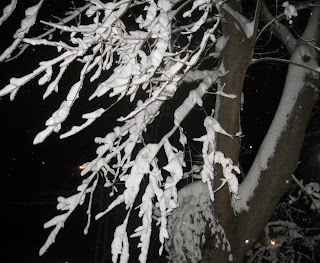
Most writers of memoir need not expect the chill and silence that has followed in the wake of my words. My story touches upon the history of a psychoanalytic community, and while mine is not a narrative about the New England Society of Jungian Analysts, it references, in part, my experiences within it. Over a period of thirty-some years this institution and ever-changing collection of analysts have played a major role in my life.
Because of my
love for the man who is my husband, who was initially for a period of nine
months my patient, I have lived under the threat of professional
excommunication for twenty-three years. For the most part mine was not an
unknown story because from the start I turned to many of my colleagues for help
and because of the surefire spread of gossip. In the early 90’s there was no
ethics code that spelled out “A member shall not engage in physical contact of
a sexual nature with a former analysand for at least two years after cessation
or termination of the professional relationship.” But there was the written
expectation that the analysts of this society “shall conduct themselves in
their work according to the highest ethical standards and shall act in the best
therapeutic interest of their analysands.”
It was clear
to me from the start that I was stepping across a line that involved wearing a
scarlet letter. I was also told from the start that to tell my story would be
professional suicide.
Everyone
should be free to love who they love, President Obama said in a recent speech
referring to the LGBT community. Albeit for complex reasons, this is not true
in the psychological community. Yet no one speaks of that.
I have
colleagues and friends who support me in the telling of this story, even those
who may not be in agreement with my beliefs, and I am forever grateful to them.
And then there are those whom I have known for decades who receive the
announcement of my book without a word.
Carl Jung
based his psychology on the principle of individuation, becoming true to a higher
Self that contains the opposites and I believe strives ultimately for the good.
I have written a memoir that includes the breaking of silence as part of my
individuation process.
What does it
take to hold the tension of the opposites, between silence and speech, between
your truth and my truth, to hold the still point and the talking point in a
dialogue that moves us ever closer to the center and heart of our
humanity?

I found your memoir to be not only the story of your individuation, but also an act of courage. While the analytical community you mention is made up of individuals, is a group ever individuated? Can a group rise to the individuals' highest selves? Unfortunately, there will always be those who cannot embrace the Other--those who are different, the boundary-crossers. It's very clear in your book that you sought guidance from deep within as well as from your colleagues and peers. You followed your heart and soul: both led to a healing love for you and the client who became your long-time husband. I think you are to be praised and commended for going against what's considered acceptable in order to create a healing relationship.
ReplyDeleteI am reminded of riding with my three year old grandson on the Santa Train here in Napa this week when a six foot Gingerbread Cookie walked through the train car shaking hands with the children. He watched closely from afar, trying to understand what this was! and then, when the Cookie reached us, he suddenly became absorbed in looking out the window of the train, turning away until the Cookie was past.
ReplyDeleteDenial that something exists is such a primitive defense! And yet, it allows the possibility of a little time to take in something new for which one does not have a matrix. One can only hope that this will be true in our professional community. Ignoring these issues does not mean they do not exist.